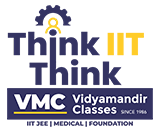NEET UG: 15% All India Quota, 85% State Quota Distribution!
 Posted On
Posted On
161 total views, 2 views today
Embarking on a medical career in India means taking the National Eligibility cum Entrance Test for Undergraduate (NEET-UG). To get into medical colleges, you need to navigate through a maze of admissions, and understanding the National and State Reservation Quotas in NEET UG is really important. This blog is here to help you grasp the ins and outs of these quotas, giving you a complete guide if you’re aiming for those sought-after seats in medical colleges.
National Quota: Opening Opportunities on a National Scale
The National Quota, often synonymous with the All India Quota (AIQ), plays a pivotal role in NEET UG admissions. Administered by the Directorate General of Health Services (DGHS), it carves out 15% of the total seats in government medical and dental colleges across the nation.
Key Insights:
- 15% Reservation: The AIQ reservation fosters diversity, promoting healthy competition on a national level.
- Centralized Counseling: The Medical Counseling Committee (MCC) conducts counseling for AIQ seats, simplifying the process for candidates eyeing seats beyond their home state.
- Deemed Universities: Some deemed institutions contribute seats to the AIQ, broadening the scope of available seats.
State Quota: Prioritizing Residents, Tailored Admissions
In contrast, the State Reservation Quota prioritizes residents of a specific state or union territory. The percentage of seats allocated to the state quota varies, with each state having unique policies and reservation criteria. State counseling authorities oversee the admission process for these seats.
Key Insights:
- State Reservations: States reserve a percentage of seats for categories like SC/ST, OBC, and economically weaker sections (EWS). Understanding these reservations is vital for candidates planning their preferences during counseling.
- Domicile Requirements: Many states impose domicile requirements, necessitating a certain period of residency for eligibility. This criterion prevents non-residents from accessing state resources.
- State Counseling Authorities: Each state has its counseling body, responsible for conducting sessions, verifying documents, and facilitating the admission process.
Mastering Both Quotas: Strategies for Success
For candidates, navigating the dual challenge of national and state quotas can be overwhelming. Here are a few tactics to increase your chances:
- Research State Policies: Understand the reservation policies and domicile requirements of the state(s) you are interested in. This knowledge will guide your preparation and counseling strategy.
- Prepare for AIQ and State Quota: Balancing preparation for both AIQ and state quota seats ensures flexibility during counseling. Having a well-rounded approach increases the likelihood that you will be admitted to a reputable Medical College.
- Stay Informed: Given the dynamic nature of these quotas, staying updated on official announcements, counseling schedules, and procedural changes is crucial. For up-to-date information, frequently visit the state counseling websites, MCC portal, and official NEET website.
Final Thoughts:
NEET UG serves as the gateway to a fulfilling career in medicine, and comprehending the national and state quotas is paramount for success. Aspiring candidates must adeptly navigate the intricate details of these quotas, preparing strategically to secure a seat aligned with their aspirations. By staying informed and planning strategically, students can navigate the complexities of NEET UG admissions with confidence and clarity, unlocking the doors to a promising future in the field of medicine.




